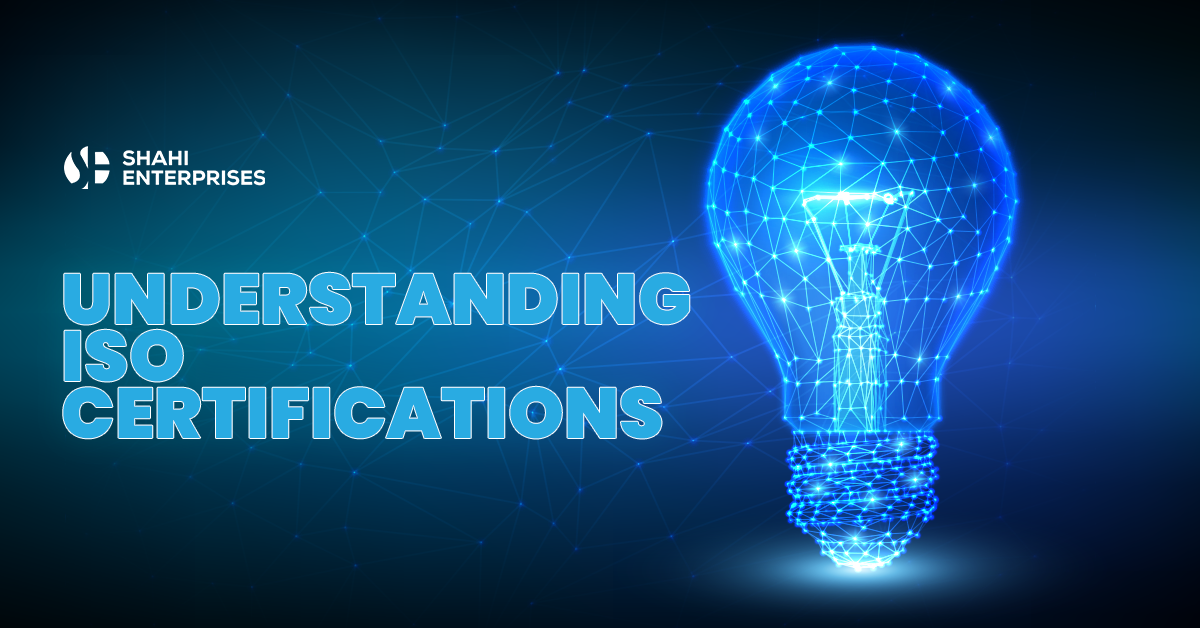In today’s dynamic and rapidly evolving business environment, maintaining a competitive edge is crucial for success. Showing customers that your business is trustworthy and that your processes, frameworks and operations are all adhering to globally agreed quality standards is a great way to increase your trust and create a positive perception.
This is where ISO certifications come into the picture: they not only increase your trustworthiness, but implementing them will give you numerous advantages, enhancing your overall efficiency, effectiveness, and competitiveness.
Let’s take a deeper look into what ISO certifications are and how you can benefit from them.
What is ISO?
ISO stands for the International Organisation for Standardisation. It is a globally recognised body that develops and publishes a whole series of standards to ensure the quality, safety, and efficiency of products, services, and systems.
Getting an ISO certification showcases your business’s adherence to these standards, reflecting your commitment to high-quality processes and operations. Based on the industry you are in and the kind of products or services you make or provide, there are different ISO certifications that may suit you.
Why you need ISO Certification
ISO certification holds immense importance for businesses, irrespective of their size or industry. Here are key reasons for businesses like yours to pursue ISO certification:
Enhanced credibility
ISO certification is globally recognised and signifies an organisation’s adherence to international standards, boosting credibility and reputation locally and internationally.
Expanding to new markets
ISO suits businesses of all sizes and industries. Having the right certification can open doors to new markets and customers, especially in industries where adherence to specific standards is mandatory for your business. For example, many public and private sector organisations require suppliers and partners to be ISO-certified.
Improved customer satisfaction
Customers often view certification as a mark of quality, fostering trust and loyalty. Meeting ISO standards can help enhance your customer’s trust, satisfaction, and loyalty towards your brand.
Improved product and service quality
Several ISO certifications deal with quality. One of the most popular is ISO 9001, a globally acknowledged benchmark for quality management systems. This provides a systematic approach to quality assurance, enhancing the consistency and quality of your products and services.
Sustainability
ISO certification encourages sustainable practices, offering organisational frameworks and tools to enhance environmental responsibility. Businesses, by obtaining certification, not only meet global standards but also contribute to building a more sustainable and environmentally conscious future.
Efficiency and cost-effectiveness
Implementing ISO standards, with dedicated support, helps you to make your processes and resource management more efficient. This will help you in streamlining your operations, reducing waste, and save money in the long run.
Adherence to legal and regulatory requirements
Integrating ISO certification with legal and regulatory requirements ensures a robust alignment. This is particularly vital in industries where legal mandates closely correspond to ISO standards.
Continuous improvement
ISO standards emphasise continual improvement. Once you get certified, you need to commit to regularly review and enhance processes to maintain your certification.
Future-proof your business with ISO
Navigating the ISO certification industry requires aligning expectations with reality. While the journey demands commitment and effort, the rewards in terms of credibility, efficiency, and competitiveness make the pursuit worthwhile. Understanding the dynamics of ISO certification ensures a more informed and successful certification experience.
Gaining ISO certifications offers numerous advantages, from enhancing management processes to cutting costs and improving health and safety protocols. Regardless of your industry, there exists an applicable ISO standard capable of fostering the growth of your business and this is where Shahi’s consultants can help.
ISO certification is not limited to any one industry, as it can be beneficial for businesses across various sectors.
What sectors can benefit from ISO certification?
Some of the sectors that can benefit from implementing ISO certification are:
Manufacturing:
ISO 9001 serves as a cornerstone for quality management systems. From automotive to electronics, this specific certification can help manufacturers streamline processes, reduce waste, and deliver consistent product quality. This in turn helps you to meet regulatory requirements, boost credibility, and gain a competitive edge in the global market.
Food Industry / Hospitality:
ISO certification benefits the food industry due to the specific challenges and requirements it faces. ISO 22000 is specially designed to address food safety management systems. It helps your business comply with regulations, build trust with consumers, and ensure the integrity of the food supply chain. The certification not only meets the current needs of the industry but also positions your food business for long-term success and sustainability.
Technology:
Tech companies can benefit significantly from ISO certification as it provides a systematic approach to quality management, environmental sustainability, and information security. Among the various ISO standards applicable to the tech industry, ISO 9001, ISO 14001, and ISO 27001 are particularly relevant. ISO 14001 aids in implementing effective environmental management systems, allowing tech firms to reduce their carbon footprint, comply with regulations, and demonstrate a commitment to sustainability.
Other notable certifications and relevance to industries include:
ISO 45001 – Occupational Health and Safety Management System (OHSMS):
In the realm of workplace safety, ISO 45001 emerges as a cornerstone for businesses. Its meticulous standards are particularly relevant for industries ranging from construction to healthcare and manufacturing, ensuring a proactive commitment to employee health and safety.
ISO 50001 – Energy Management System (EnMS):
A strategic ally for energy-conscious businesses, ISO 50001 facilitates optimal energy management. Its relevance extends to industries such as manufacturing, energy, and transportation, fostering a reduction in energy consumption and a heightened commitment to environmental stewardship.
ISO 55000 – Asset Management:
ISO 55000 serves as an indispensable guide for businesses with substantial asset portfolios. Industries encompassing utilities, transportation, and manufacturing can leverage its principles to ensure effective asset management, aligning assets with organisational objectives.
Shahi Enterprises: Your trusted ISO partner
Shahi Enterprises serves as a trusted partner in your ISO certification journey, offering expert consultation, audit, and implementation support services. With a commitment to excellence, Shahi Enterprises has helped 3,000 companies in UAE and India across 40 industries navigate the complexities of ISO standards, enhancing their credibility, efficiency, and competitiveness.
The journey towards ISO certification is a strategic investment, ensuring not only compliance but charting a course towards a profitable business. If you’re seeking an expert partner to handle your audit processes, risk assessments, and compliance requirements during your ISO certification journey, book your exploratory call today.
Make sure to follow Shahi Enterprises on LinkedIn for further updates and insights.

